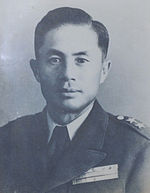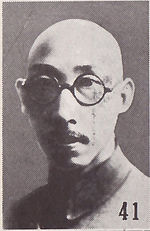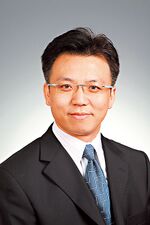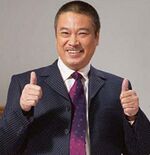Government of Brem
The Government of Brem is the federal government of the Republic of Brem. It is a presidential system. It largely emulates Euclean governments in structure and style but bears a number of marked differences that makes it notably distinct from liberal democracies common in the world.
The Bremish government is located in Yidu.
Leader
The Leader of Brem (大掌舵 dazangto, literally 'Great Helmsman', a term originating from Bremish organized crime and secret societies) is the head of state and head of government. The Leader is elected by the Presidium and constitutes as a member of it. The Leader possesses a broad range of powers, being effectively able to rule by decree, but is constantly subject to the supervision of the legislature, the Presidium, and social interests, while more important decisions such as declarations of war require legislative approval. As with most other countries, the Leader is also the commander-in-chief of the armed forces.
List of Leaders
Since Brem's declaration of independence in 1936 there has been 9 Leaders.
| No. | Portrait | Name | Took office | Left office | Term length | Estate |
|---|---|---|---|---|---|---|
| 1 | 
|
General Cen Vancen 程萬成 (1890–1951) |
19 October 1936 | 4 May 1945 | 8 years, 6 months and 15 days | Military |
| 2 | 
|
General Niang Cuan 梁傳 (1901–1978) |
4 May 1945 | 29 April 1953 | 7 years, 11 months and 25 days | Military |
| 3 | 
|
General Zao Kuezu 趙國柱 (1902–1985) |
1 May 1953 | 1 February 1960 | 6 years and 9 months | Military |
| 4 | 
|
Niu Y 劉羽 (1902–1985) |
1 February 1960 | 20 February 1964 | 4 years and 19 days | Yzou Machinery Corporation |
| 5 | 
|
General Ni Xuan 李旋 (1912–2011) |
20 February 1964 | 19 September 1985 | 21 years, 6 months and 30 days | Military |
| 6 | 
|
Niu Renz 劉仁治 (1926–) |
19 September 1985 | 30 October 2003 | 18 years, 1 month and 11 days | Great River Society |
| 7 | 
|
S Mide 施彌德 (1967–) |
31 October 2003 | 10 June 2009 | 5 years, 7 months and 10 days | University of Yzou |
| 8 | 
|
Nu Fen 魯奮 (1952–) |
10 June 2009 | 11 July 2015 | 6 years, 1 month and 1 day | Tiansangnao |
| 9 | 
|
Sen Cuan 孫川 (1984–) |
11 July 2015 | Incumbent | 9 years, 5 months and 11 days | Dasxyng |
Presidium
The Presidium is analogous to a board of directors for the Bremish government which serves to supervise the executive branch's operations. The Presidium elects the Leader and may depose the Leader any time by a majority vote. The members of the Presidium are elected by an electorate constituted from all allodiaries of Brem, that is, those who possess sovereignty over property in the country (and are analogous to shareholders).
In Bremish political theory, the Presidium holds supreme 'functional and temporal sovereignty' as the most engaged and powerful direct representative of the population.
List of Presidium members
Cabinet
The Cabinet is assembled by the Leader, whose nominations are approved by the Presidium. The Leader serves as its head. It consists of officials presiding over the following 13 government ministries:
- Ministry of Defence
- Ministry of Foreign Affairs
- Ministry of Public Security
- Ministry of Finance
- Ministry of Commerce
- Ministry of Culture
- Ministry of Civil Affairs
- Ministry of Justice
- Ministry of Public Infrastructure
- Ministry of Natural Resources
- Ministry of Science and Technology
- Special Projects Commission
- Special Economic Zones Commission
Parliament
The Parliament is the legislature of Brem. Powers and functions of the Parliament do not vary significantly compared to other liberal democracies, though the actual role it serves is somewhat more limited. The Parliament is bicameral, consisting of the House of Elders and the House of Commons.
The House of Elders consists of 40 seats allocated to representatives of religious and other cultural institutions, and another 193 seats allocated to representatives of the various estates of the country. The number of seats thus frequently changes due to the changes in number of legal constituents present. An estate typically sends its presiding officer or equivalent as the representative to the House.
The House of Commons consists of 595 legislators elected by an electorate constituted from all allodiaries/legal constituents/citizens. With about 1.5 million such allodiaries present in Brem each legislator represents around 136,000 residents or 2,500 citizens.
Legislation requires both of the Houses to agree by at least a 2/3 majority in order to be passed (perfect bicameralism).
Speaker
The Speaker presides over the Parliament during sessions. It is largely a ceremonial appointment but appointees typically have great influence, and thus Speakers have frequently been seen as the Leader's right-hand men, if not exactly within the framework of formal politics.
The current speaker is Niu Uan.
